Did you know that over 80% of transactions in smaller towns and rural areas of Belarus are still conducted in cash? This fascinating country blends its Soviet-era legacy with modern charm, offering travelers a unique experience. However, navigating its monetary system can be tricky without the right preparation.
While cities like Minsk are becoming more card-friendly, many places, especially outside urban centers, prefer cash. This is due to limited acceptance of international cards and higher fees. Understanding the local currency practices can save you time and hassle during your trip.
Whether you’re exploring historic landmarks or enjoying the natural beauty of places like Belovezhskaya Pushcha National Park, having the right payment methods ensures a smooth journey. Let’s dive into what you need to know to make your visit seamless and enjoyable.
Introduction to Belarus and Its Currency Landscape
Exploring the financial landscape of this unique country can be both exciting and challenging. Known for its rich history and distinct culture, it offers a blend of traditional and modern payment methods. Understanding how money works here is essential for a smooth and enjoyable trip.
In smaller communities and traditional markets, cash remains the preferred way to pay. This is especially true outside major cities, where international cards may not be widely accepted. Being prepared with local currency can save you time and hassle.
Travelers often face challenges with international cards due to limited acceptance and higher fees. Knowing where and how to use your cards can make a big difference. This guide will provide practical advice to help you manage your finances with ease.
Belarusian Ruble (BYN): Currency Facts and Figures
Understanding the Belarusian Ruble (BYN) can make your trip more convenient and cost-effective. This local currency is widely accepted and minimizes fees, ensuring you get the most out of your money.
Understanding Denominations and Coins
The BYN comes in banknotes of Br.500, 200, 100, 50, 20, 10, and 5, along with coins for smaller transactions. Each note features unique designs, showcasing the country‘s culture and history. Security features like watermarks and holograms make counterfeiting difficult.
Why BYN is the Best Currency for Your Trip
Using BYN ensures smooth transactions, especially in rural areas where cash is preferred. It reduces exchange fees and avoids the hassle of converting foreign bills. Having local currency on hand also helps you navigate markets, transportation, and small businesses with ease.
Payment Methods in Belarus: Navigating Cash & Card Usage
Navigating payment methods in this country requires a mix of preparation and flexibility. While cards are accepted in larger cities, cash remains the preferred option in many areas. Understanding when to use each can make your trip smoother and more enjoyable.
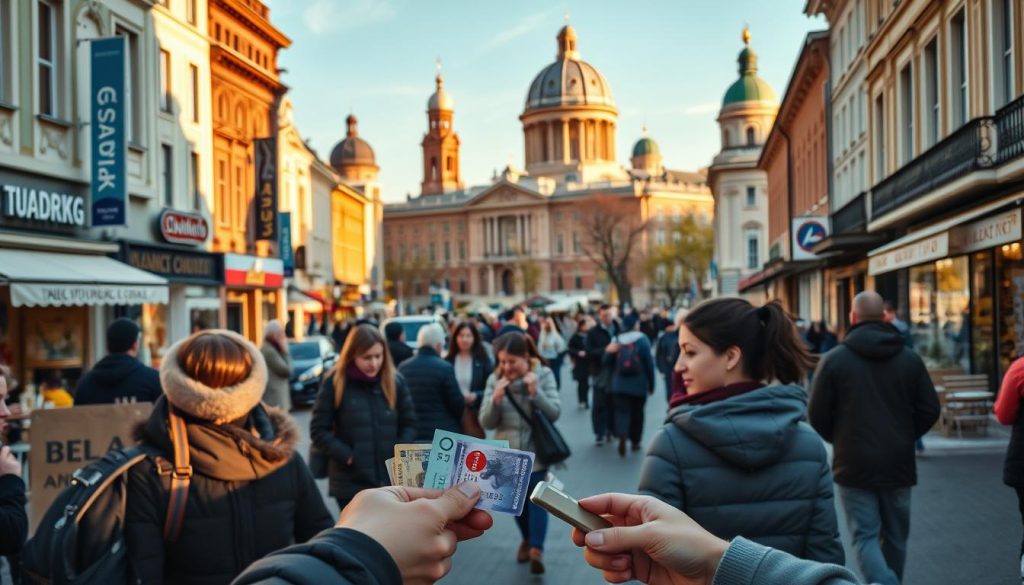
Where Cash is King
In smaller towns and local markets, cash is essential. Many vendors and small businesses do not accept cards, especially in rural areas. Having local currency on hand ensures you can shop, dine, and travel without hassle.
Public transportation and street vendors also operate primarily on cash. Even in cities, some smaller establishments prefer it. Always carry enough for daily expenses to avoid inconvenience.
Limitations of International Cards
International cards face limitations due to sanctions and local banking policies. While major hotels and restaurants in cities like Minsk may accept them, smaller businesses often do not. Always confirm card acceptance before making a purchase.
ATMs are available but may not accept foreign-issued cards. If you plan to use cards, check with your bank about international fees and withdrawal limits. A backup of cash is always a smart tip for unexpected situations.
Currency Exchange in Belarus
Finding the best places to exchange your money can save you time and money during your trip. In this country, currency exchanges are most reliable at banks and licensed bureaus. These locations offer competitive rates and ensure secure transactions.
Best Locations for Exchanging Money
For the best exchange rates, head to trusted banks like Belarusbank, Belagroprombank, and Priorbank. These institutions are widely available in cities and provide transparent services. Licensed bureaus are also a good option, especially for travelers looking for convenience.
Avoid exchanging money at airport kiosks or hotels. These places often charge higher fees and offer less favorable rates. Instead, plan to exchange your currency at local banks or official bureaus once you arrive.
Tips for Competitive Exchange Rates
Here are some practical tips to get the most out of your currency exchange:
- Compare rates at multiple locations before making a transaction.
- Keep receipts for every exchange to track your spending and avoid disputes.
- Exchange smaller amounts at a time to limit fees and manage your budget better.
| Location | Advantages |
|---|---|
| Belarusbank | Competitive rates, reliable service |
| Belagroprombank | Wide availability, transparent fees |
| Licensed Bureaus | Convenient locations, quick transactions |
By following these strategies, you can ensure a smooth and cost-effective currency exchange experience during your travels.
Using ATMs and Banking Services in Belarus
Using ATMs in a foreign country can be straightforward with proper preparation. In Belarus, ATMs are widely available, especially in major cities like Minsk and tourist hubs. However, international travelers should be aware of potential challenges to ensure smooth transactions.
ATM Accessibility for International Cards
Major banks such as Priorbank, BPS-Sberbank, and Belinvest Bank offer ATMs that accept international cards. These are often located in airports, shopping centers, and busy streets. Look for ATMs with Visa or Mastercard logos to ensure compatibility.
In rural areas, ATM availability may be limited. Always carry enough cash when traveling outside cities. Confirm with your bank that your card is enabled for international use before your trip.
Avoiding Excess Withdrawal Fees
Withdrawal fees can add up quickly. To minimize costs, withdraw larger amounts less frequently. Check with your bank about partnerships with local banks to reduce fees. Some banks offer fee-free withdrawals for certain account types.
Here are some practical tips to save money:
- Use ATMs at major banks for better rates and security.
- Monitor exchange rates to time your withdrawals wisely.
- Keep a backup card in case of issues with your primary one.
| Bank | Features |
|---|---|
| Priorbank | Wide ATM network, accepts international cards |
| BPS-Sberbank | Low fees, convenient locations |
| Belinvest Bank | Secure transactions, English interface |
By following these strategies, you can access your funds efficiently and avoid unnecessary expenses during your trip.
Managing Money on the Ground: Insider Cash-Safety Tips
Keeping your money safe while traveling is essential for a stress-free experience. While this country is generally safe, petty theft can happen, especially in crowded areas. Being prepared with smart strategies ensures you stay secure and enjoy your trip.
One of the best tips is to carry only the cash you need for the day. Split your money into different pockets or bags to minimize loss if something happens. A money belt or hidden pouch is a great way to keep larger amounts secure and out of sight.

Avoid handling money in public to prevent attracting unwanted attention. Use discreet methods like counting cash in a private space or using small denominations for everyday purchases. This reduces the risk of theft and keeps you focused on enjoying your surroundings.
Blending cash and cards is another smart strategy. Use cards for larger transactions in secure locations and cash for smaller, everyday expenses. This mix ensures you’re prepared for any situation while minimizing risk.
Here’s a quick summary of key safety practices:
| Tip | Benefit |
|---|---|
| Carry only necessary cash | Reduces loss in case of theft |
| Use a money belt | Keeps valuables hidden and secure |
| Avoid counting money in public | Prevents attracting attention |
| Blend cash and cards | Ensures flexibility and security |
By following these practical tips, you can manage your money safely and focus on making the most of your travels. Stay aware, stay prepared, and enjoy your journey with peace of mind.
Belarus: Ultimate Travelers Guide to Currencies & Payments
Managing your finances effectively is key to a smooth travel experience. This guide revisits essential insights to help you navigate the financial landscape with confidence. Whether you’re exploring bustling cities or serene countryside, being prepared ensures you focus on enjoying your journey.
One of the primary challenges travelers face is the reliance on cash in many areas. While cards are accepted in urban centers, smaller towns and rural regions often prefer local currency. Carrying enough cash ensures you can shop, dine, and travel without interruptions.
Understanding the local exchange and banking systems is another crucial step. Familiarizing yourself with trusted banks and ATMs can save you time and money. Here’s a quick overview of key strategies:
- Exchange money at reliable banks or licensed bureaus for competitive rates.
- Carry a mix of cash and cards for flexibility and security.
- Confirm card acceptance before making purchases to avoid surprises.
International payment methods come with limitations. Many ATMs may not accept foreign cards, and fees can add up quickly. Being prepared with local currency and backup cash ensures you’re ready for any situation.
| Challenge | Solution |
|---|---|
| Limited card acceptance | Carry local currency for small transactions |
| High ATM fees | Withdraw larger amounts less frequently |
| Exchange rate fluctuations | Monitor rates and exchange in small amounts |
By following these practical tips, you can manage your finances effectively and enjoy a stress-free trip. This guide is your anchor to navigating the monetary systems of this unique country with ease.
Handling Currency Restrictions and Regulations
Understanding the rules around currency restrictions can save you from unexpected hassles during your trip. This country has specific regulations to ensure smooth financial transactions and compliance with local laws. Being aware of these rules helps you avoid fines and ensures a stress-free journey.
Import and Export Rules
When entering or leaving, you must follow strict rules regarding local currency. All remaining Belarusian Rubles (BYN) must be reconverted before departure. This ensures you don’t carry excess local cash out of the country.
For foreign currency, there are limits on the amount you can bring in or take out. Exceeding these limits without proper documentation can lead to penalties. Always check the latest regulations to stay compliant.
What to Declare When You Arrive
Upon arrival, you’re required to declare any foreign cash exceeding a certain amount. This declaration helps authorities monitor financial transactions and prevent illegal activities. Keep all receipts and paperwork for every exchange or transaction to avoid complications.
Failure to declare can result in fines or confiscation of funds. Staying organized and informed ensures you navigate these regulations with ease.
Here are some practical tips to handle currency restrictions effectively:
- Reconvert any remaining BYN before leaving the country.
- Declare foreign cash above the allowed limit upon arrival.
- Keep all receipts and documentation for every transaction.
- Stay updated on the latest regulations to avoid penalties.
Alternative Payment Options in a Sanctioned Environment
Navigating financial transactions in a sanctioned environment requires creativity and adaptability. With traditional banking systems facing limitations, exploring alternative payment methods can make your trip smoother and less stressful.
Local money transfer services are a reliable option in many areas. These services allow you to send and receive funds quickly, often with lower fees than international banks. They are widely used in smaller towns and rural regions where traditional banking options are scarce.
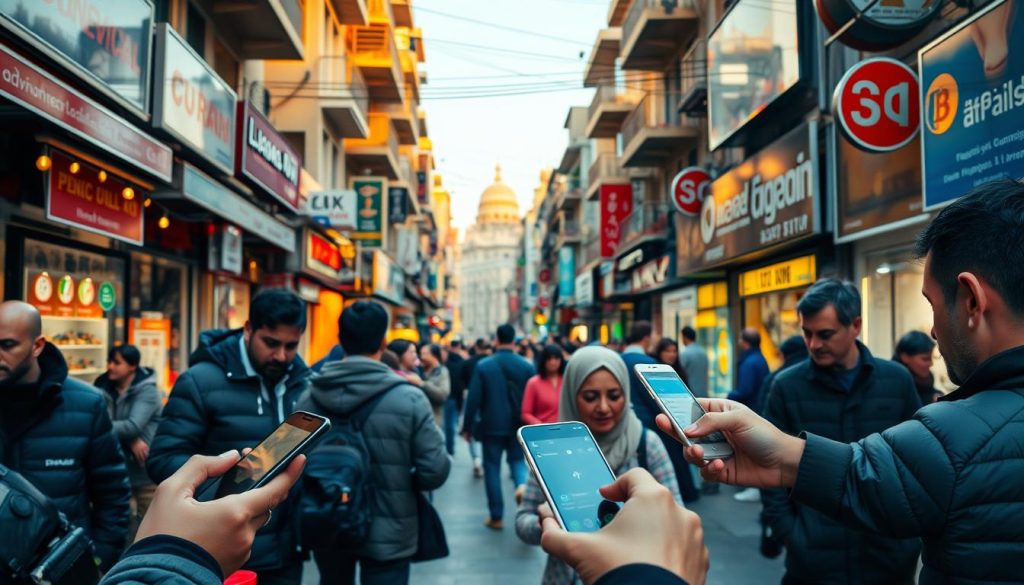
Digital wallets are another practical solution. While not universally accepted, some platforms operate within the country, enabling secure and convenient transactions. These wallets are particularly useful for online purchases and peer-to-peer transfers.
Here are some benefits of using alternative payment methods:
- Lower fees: Local services often charge less than international banks.
- Convenience: Access funds quickly without relying on ATMs or card networks.
- Flexibility: Use a mix of cash and digital options to suit your needs.
However, challenges exist. Limited acceptance of digital wallets and the need for cash in certain areas can complicate transactions. Staying informed and prepared ensures you can adapt to these situations.
Local practices also support alternative transactions. For example, many small businesses and vendors prefer direct transfers or cash payments. Understanding these preferences helps you navigate the financial landscape with ease.
By embracing creative solutions, you can manage your finances effectively and focus on enjoying your journey. Staying flexible and informed is the key to a stress-free experience in a sanctioned environment.
Maximizing Exchange Rates: Apps and Techniques
Getting the best exchange rates during your trip can make a big difference in your budget. With the right tools and techniques, you can save money and avoid unnecessary fees. Technology has made it easier than ever to access competitive rates, even in a foreign country.
Utilizing the ATM Fee Saver App
One of the most helpful tools for travelers is the ATM Fee Saver App. This app helps you find ATMs with low or no fees, saving you money on withdrawals. It also provides information on exchange rates, ensuring you get the best deal for your currency.
Using this app is simple. Just enter your location, and it will show you nearby ATMs with their fees and rates. This is especially useful in areas where international cards face higher charges. It’s a smart tip for anyone looking to optimize their financial transactions.
Why Local Rates are More Favorable
Local exchange bureaus often offer better rates than airports or hotels. These places charge higher fees, which can add up quickly. By exchanging your money at trusted local banks or bureaus, you can save significantly.
Here’s a quick comparison:
- Airport Exchanges: High fees, less favorable rates.
- Local Bureaus: Competitive rates, lower fees.
Monitoring exchange rates regularly can also help you time your transactions for the best value. Apps and online tools make this easy, allowing you to stay informed and make smart decisions.
By leveraging technology and choosing the right locations, you can maximize your exchange rates and keep more money in your pocket. These strategies ensure a smoother and more cost-effective travel experience.
Budgeting in Belarus: Money-Saving Tips for Travelers
Traveling on a budget doesn’t mean compromising on experiences; it’s about smart planning. This country offers plenty of opportunities to stretch your money while enjoying its rich culture and attractions. With a few practical tips, you can make your trip both affordable and memorable.
One of the easiest ways to save is by exploring local food markets. These spots offer fresh, delicious meals at a fraction of restaurant prices. You’ll also get a taste of authentic flavors while supporting local vendors. Public transportation is another budget-friendly option, with buses and trams connecting major cities and towns.
Accommodation costs can vary, but staying in budget-friendly hostels or guesthouses can significantly reduce expenses. Many of these places offer clean, comfortable rooms and a chance to meet fellow travelers. Booking in advance can also help you secure better rates and avoid last-minute price hikes.
Here are some additional strategies to keep your spending in check:
- Track daily expenses to stay within your budget.
- Use apps to compare prices for transportation and activities.
- Plan meals and snacks to avoid overspending on food.
By planning ahead and making thoughtful choices, you can enjoy a stress-free trip without breaking the bank. These simple steps ensure you focus on the experience rather than worrying about finances.
Real Traveler Experiences: Overcoming Currency Challenges
Traveling often brings unexpected challenges, especially when it comes to managing your finances. Hearing real-life stories from fellow travelers can provide valuable insights and practical solutions. Whether it’s dealing with ATM malfunctions or navigating a cash-based economy, these experiences highlight the importance of preparation and adaptability.

Overcoming ATM Limitations
One traveler shared how they faced issues with ATMs in a rural area. “I tried multiple machines, but none accepted my international card,” they recalled. This situation reinforced the need to carry enough cash when venturing outside cities. Another traveler suggested using ATMs at major banks, which are more likely to accept foreign cards.
To avoid similar issues, always confirm ATM compatibility before your trip. Carry a backup card and keep emergency funds in local currency. These simple steps can save you from unnecessary stress and ensure you’re prepared for any situation.
Stories from the Road
Another traveler shared how they adapted to the country’s cash-based economy. “I quickly realized that many small vendors only accepted cash,” they said. This experience taught them to always have local money on hand, especially for markets and public transportation.
Creative problem-solving also came into play. One traveler used a mix of cash and digital wallets to manage their expenses. “I used cash for small purchases and digital payments for larger transactions,” they explained. This approach provided flexibility and minimized the risk of running out of funds.
Here are some key takeaways from these experiences:
- Carry enough local cash for daily expenses.
- Confirm ATM compatibility and have a backup card.
- Use a mix of payment methods for flexibility.
By learning from others’ experiences, you can navigate financial challenges with confidence and enjoy a smoother journey. Preparation and adaptability are your best allies when it comes to managing money abroad.
Planning Your Finances for a Hassle-Free Journey
Planning your finances before your trip can make all the difference in ensuring a smooth and enjoyable experience. Proper preparation helps you avoid unexpected expenses and ensures you’re ready for any situation. Whether you’re exploring bustling cities or serene countryside, having a solid financial plan lets you focus on the adventure.
Start by setting up multiple payment methods before you arrive. A mix of local money and international cards provides flexibility and security. Research local banks and official currency exchanges in advance to find the best rates and avoid unnecessary fees. This step ensures you’re prepared for daily expenses and emergencies.
Budgeting is another essential part of financial planning. Track your daily expenses and allocate funds for transportation, meals, and activities. Apps can help you compare prices and manage your spending effectively. By planning ahead, you can make the most of your trip without overspending.
Here’s a quick guide to managing your finances:
| Step | Benefit |
|---|---|
| Set up multiple payment methods | Provides flexibility and security |
| Research local banks and exchanges | Ensures competitive rates and low fees |
| Create a daily budget | Helps track spending and avoid overspending |
| Carry emergency funds | Prepares you for unexpected situations |
Thorough planning minimizes surprises and financial stress once you arrive. By following these steps, you can enjoy your journey with peace of mind, knowing your finances are well-managed. Preparation is the key to a hassle-free and memorable trip.
Comprehensive Overview of Currency and Money Essentials
Mastering the essentials of currency and money management can transform your travel experience. This guide consolidates key information to help you navigate the financial landscape with confidence. From understanding local payment methods to budgeting effectively, these insights ensure a smooth journey.
Familiarizing yourself with the local currency is the first step. Knowing the denominations and where to exchange money can save you time and avoid unnecessary fees. Always exchange at trusted banks or licensed bureaus for the best rates.
Here’s a quick checklist to manage your finances effectively:
- Carry a mix of local currency and international cards for flexibility.
- Use ATMs at major banks to minimize fees and ensure compatibility.
- Track exchange rates to time your transactions for the best value.
Understanding the country’s financial regulations is equally important. Declare any foreign cash above the allowed limit upon arrival and keep all receipts for transactions. This ensures compliance and avoids penalties.
By planning ahead and staying informed, you can focus on enjoying your trip without financial stress. These strategies make managing your money simple and efficient.
Final Thoughts and Conclusion: Managing Payments in Belarus
Navigating financial systems in a new place can feel daunting, but with the right preparation, it becomes manageable. This guide has equipped you with practical tips to handle payments confidently during your travels. By understanding local practices and staying prepared, you can turn potential challenges into smooth experiences.
Remember, carrying local currency is essential, especially in smaller towns and rural areas. Trust the advice shared here to make informed decisions about exchanges, ATMs, and budgeting. A mix of cash and cards ensures flexibility and security wherever you go.
Exploring a new country is an adventure, and managing your finances shouldn’t be a stressor. With these insights, you’re ready to embrace your journey with confidence. Enjoy the experience, knowing you’re well-prepared to handle any financial situation that arises.
The above is subject to change.
Check back often to TRAVEL.COM for the latest travel tips and deals.
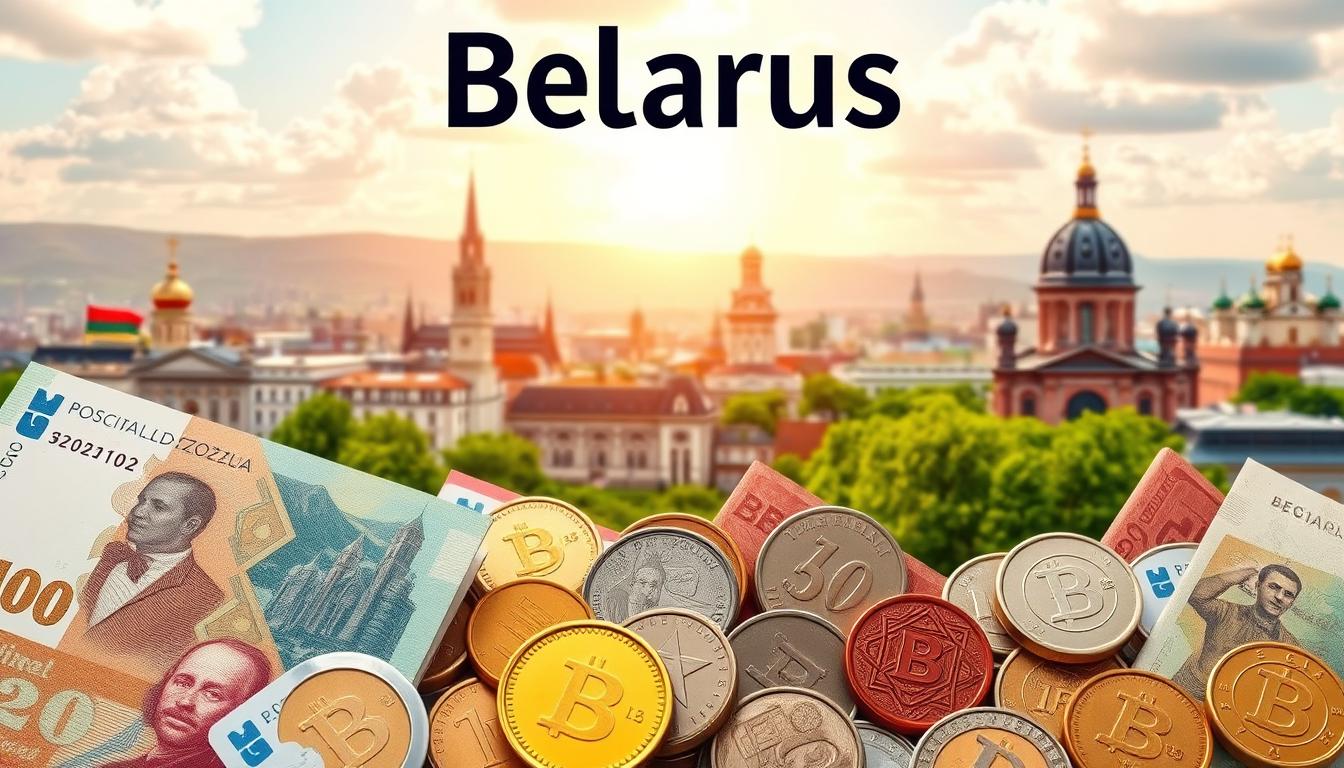
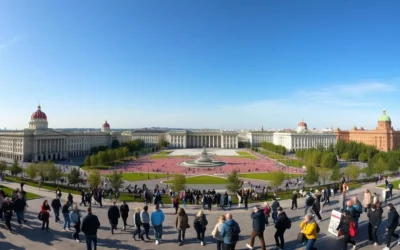
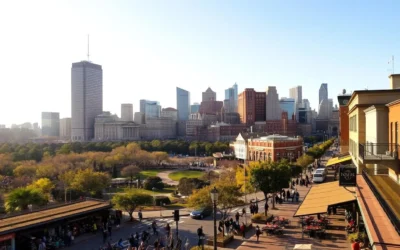
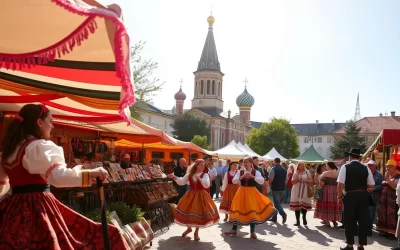

0 Comments